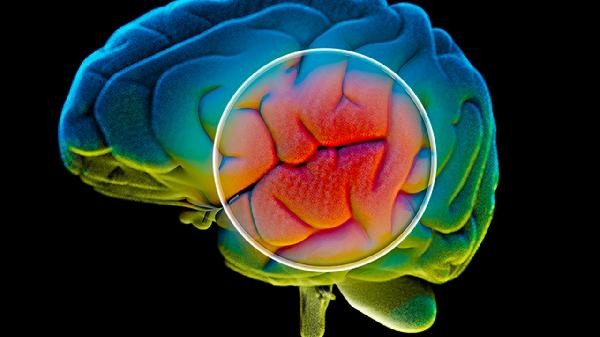The brain's inability to control wild thoughts usually does not directly lead to illness, but long-term overthinking may trigger or exacerbate psychological problems. This situation may be related to anxiety traits, stress accumulation, sleep disorders, neurotransmitter imbalances, traumatic experiences, and other factors.

1. Anxiety Trait
People with anxiety sensitive personalities are more likely to fall into a cycle of repetitive thinking. This group of people often have disastrous associations with vague situations, and the regulatory function of the prefrontal cortex on the amygdala is relatively weak. Developing mindfulness meditation habits can help break down rumination and cognitive behavioral therapy can be performed when necessary.
2. Accumulation of stress
Continuous work pressure or interpersonal conflicts can consume psychological energy, leading to overactive default mode networks in the brain. In this state, even during rest, a large amount of invasive thinking will automatically occur. Establishing regular exercise habits and a social support system can effectively alleviate the accumulation of stress.
3. Sleep disorders
Poor sleep quality can significantly affect prefrontal function, making people more prone to negative thinking cycles. The abnormal increase in rapid eye movement during sleep is related to the consolidation of negative emotional memory. Maintaining a fixed sleep schedule and avoiding blue light stimulation before bedtime can help improve this situation.

4. Neurotransmitter imbalance
Low function of the serotonin system may lead to a decrease in inhibitory thinking ability, and abnormal dopamine secretion can disrupt attention regulation. This situation requires professional evaluation, and doctors may recommend the use of drugs that regulate neurotransmitters such as sertraline hydrochloride and escitalopram oxalate.
5. Unprocessed traumatic memories from traumatic experiences
can lead to abnormal connections between the hippocampus and amygdala in the brain, triggering uncontrolled flashbacks. Patients with post-traumatic stress disorder often have a persistent state of alertness. Eye movement desensitization reprocessing therapy and narrative therapy have good effects on such situations.

It is recommended to maintain aerobic exercise for more than 30 minutes every day, such as brisk walking or swimming, which can promote the secretion of brain-derived neurotrophic factors. In terms of diet, foods rich in omega-3 fatty acids such as salmon and walnuts can be added. Establish a bedtime relaxation ritual to avoid dealing with complex tasks two hours before bedtime. If the symptoms persist for more than two weeks and affect social function, seek timely help from a psychological or psychiatric professional. Regular self-assessment of psychological state can help detect problems early.








Comments (0)
Leave a Comment
No comments yet
Be the first to share your thoughts!